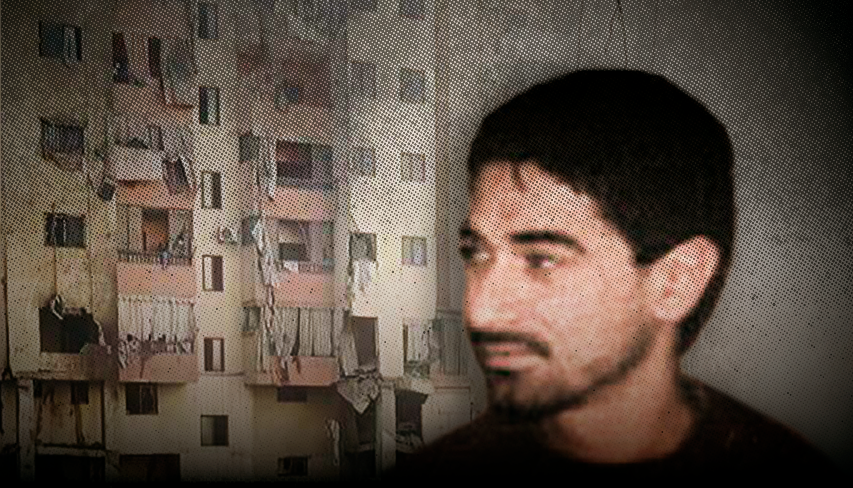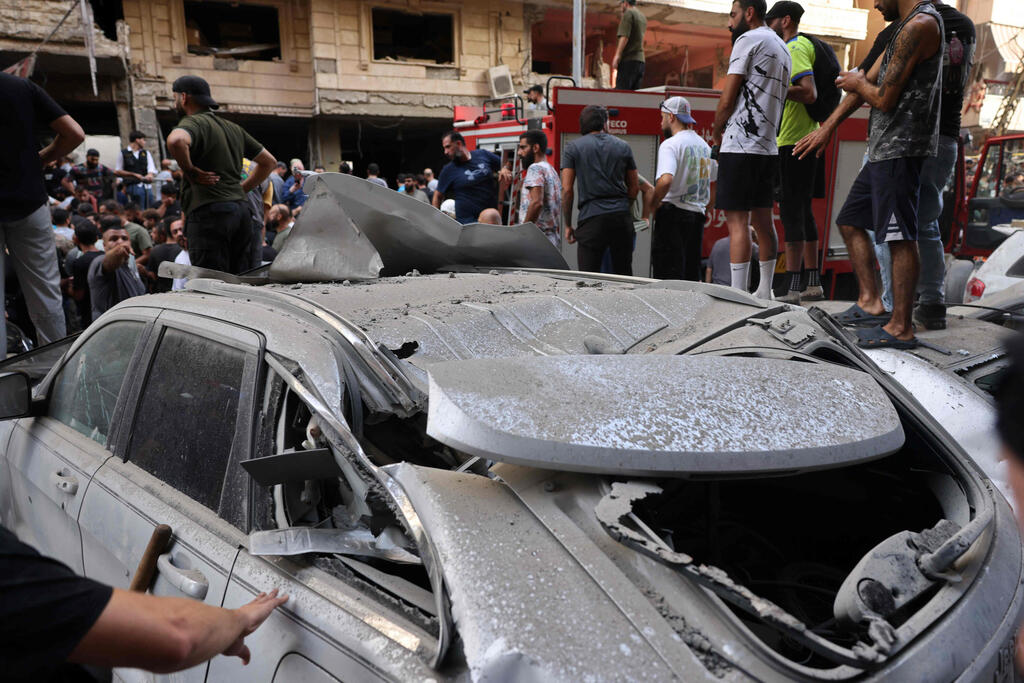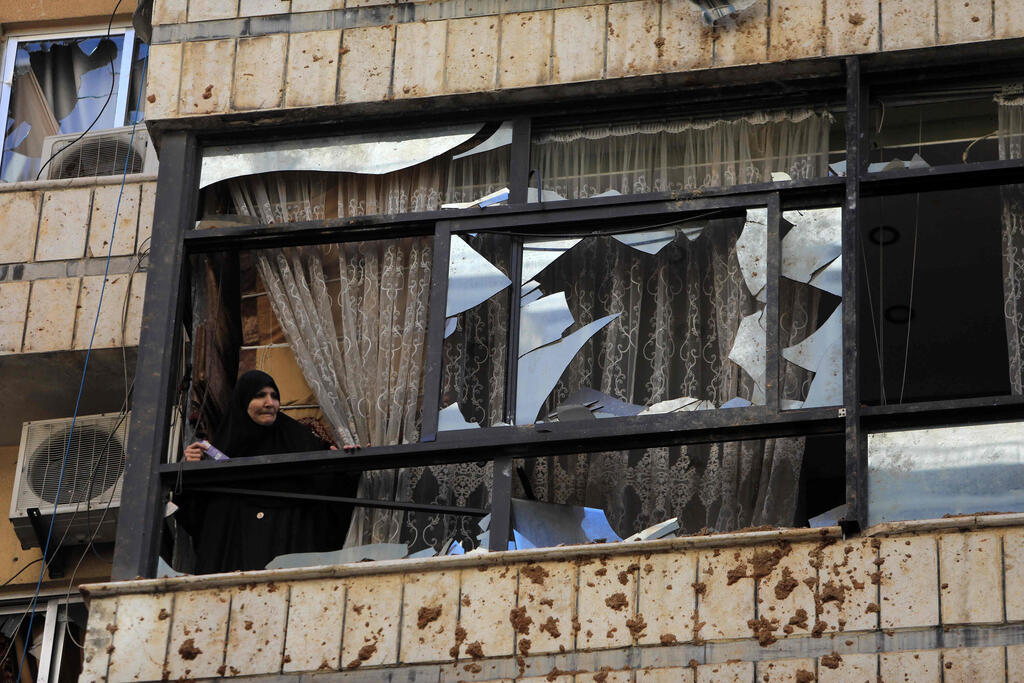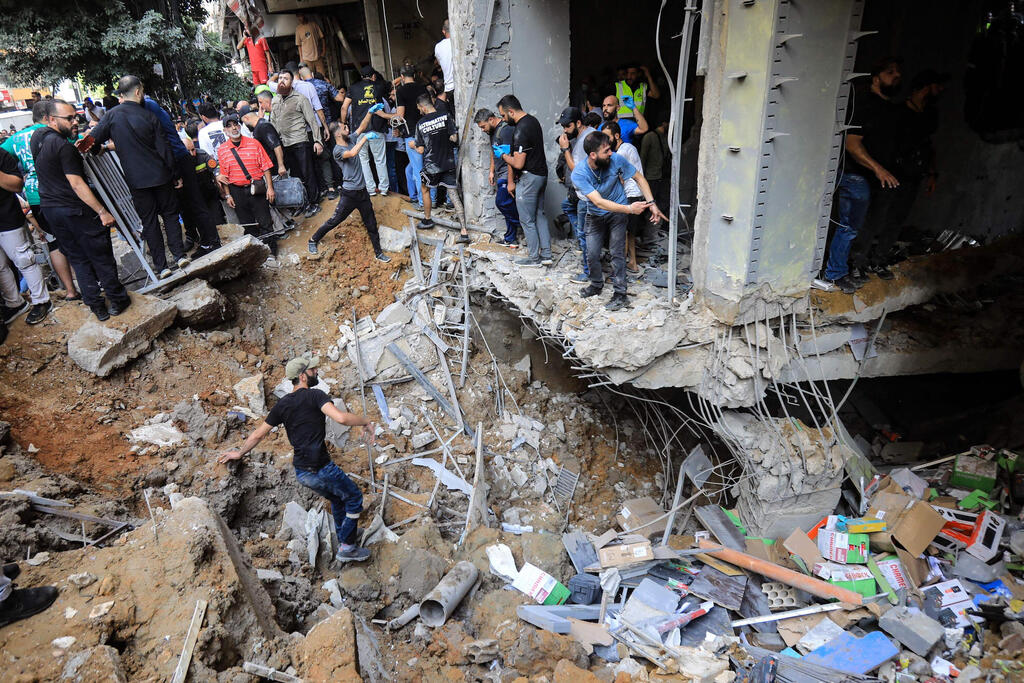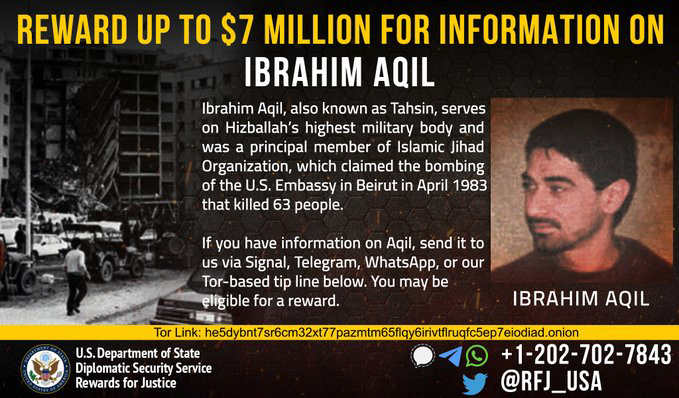Getting your Trinity Audio player ready...
Hours after the attack in the Dahieh district in Beirut, where, according to the IDF, the head of Hezbollah's operations array, Ibrahim Aqil, was assassinated with about 10 other Radwan Force commanders. The Lebanese Interior Minister ordered a blockade around the building that was attacked and collapsed to facilitate the rescue efforts of the injured and the dead. According to the IDF spokesperson, Rear Admiral Daniel Hagari, Aqil and the Hezbollah commanders gathered underground under residential buildings.
According to the IDF, the attack was carried out by F-35 fighter jets, which launched missiles at the building. The Al-Jazeera network reported that four missiles were fired at the location of the Radwan Force meeting, two stories underground.
More than 20 people took part in the meeting and Al-Jazeera quoted a Lebanese security source who said several members of the Radwan Force came out injured. According to the Lebanese MTV news network, the families of three senior Radwan Force operatives were informed that more bodies are expected to be uncovered, increasing the death toll.
According to the figures published in Lebanon, at least 14 people were killed in the attack, and another 66 were injured, including nine who were critically injured. Footage of the attack shows heavy damage to the targeted structure and to dozens of adjacent cars. Parked cars were overturned, and windows were shattered. According to the Hezbollah-affiliated Al-Mayadeen network, dozens of shops were also damaged in the attack.
An eyewitness who spoke to the New York Times said that he did not hear the sound of a missile coming at all before the attack: "It was more like an earthquake. Our building shook for a bit." Other residents reported chaos, and one of them, Mortada Smaoui, testified that when he arrived at the scene he found a building completely destroyed and a car overturned on its side. He said that he tried to help a woman who was looking for her child, but the rescue forces demanded that he leave: "The building was destroyed completely, I am shaking."
The attack in Dahieh was the third one carried out by the Air Force since the beginning of the war. In the first attack, senior Hamas official Saleh al-Arouri was eliminated, and in the second, Fuad Shukr, known in Israel as Hezbollah's chief of staff. The Iranian embassy in Lebanon condemned the attack and said that the "Israeli madness has crossed all borders."
According to the IDF, Aqil and the commanders who were eliminated were among the architects of the "plan to occupy the Galilee", in the Shiite terrorist organization's plan to raid Israel, occupy the Galilee settlements, and murder innocent civilians, similar to the massacre carried out by Hamas on October 7.
At the same time, the Qatari Al-Araby Al-Jadeed quoted a Hezbollah parliamentary source who said: "The attack in Dahieh follows Israel's extermination war that Israel is waging in the region. No matter how much Israel escalates the operations, the Lebanese front will remain open to support Gaza. The reckoning will come, and the retribution will be just, time will tell. Every Israeli violation will be answered accordingly."
A diplomatic source, whose identity was not reported, told the Saudi Al-Hadath network that "the assassination of Aqil carries a political and military message according to which Hezbollah's escalation will be met with an escalation in Dahieh."
Netanyahu urges France to pressure Hezbollah
Meanwhile, in the diplomatic aspect, Several countries attempt to avoid escalation into an all-out war between Israel and Hezbollah. Prime Minister Benjamin Netanyahu spoke on Friday with French President Emmanuel Macron. Macron accused Israel of pushing the region into war, and Netanyahu responded that instead of pressuring Israel, it's time for France to increase the pressure on Hezbollah.
A French diplomat said that it is clear there are differences of opinion between the two sides going forward. France called on all parties in the region to exercise maximum restraint to close the negotiations for a cease-fire in Gaza and to facilitate a diplomatic settlement on Israel's northern border. He added that recent security developments in Lebanon have further increased the likelihood of war, while convinced that a diplomatic path still exists.
Last year, to mark the 40th anniversary of the 1983 bombing of the U.S. Embassy in Beirut, the White House announced a $7 million reward for information on Aqil, who was one of the masterminds of the attack that killed 63 people. Alongside Aqil, Imad Mughniyeh, a former Hezbollah military chief who was killed in a strike attributed to Israel, was also considered responsible for the attack.
Aqil was also involved in the October 1983 bombing of the U.S. Marine barracks in Beirut, which killed 241 U.S. service members. In addition, he oversaw the abduction of American and German hostages in Lebanon and was considered a potential successor to Hezbollah’s military leadership long before Shukr’s assassination, also in Dahieh.
Aqil survived several assassination attempts, including one in February 2000 when Israeli Apache helicopters fired missiles at his car, leaving him lightly wounded.


